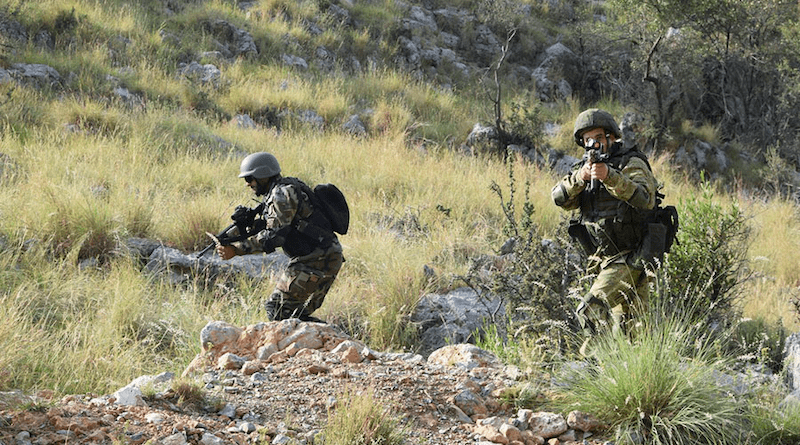Legitimizing The Counter-Insurgency Operations – OpEd
In recent years, Pakistan has faced a complex and multifaceted insurgency that has challenged the stability of the state and the legitimacy of its government. This insurgency has been fueled by a number of factors, including political and economic grievances, sectarian and ethnic tensions, and extremist ideologies. As a result, the insurgency has posed a serious threat to the security and stability of Pakistan, as well as to the wider region and the world.
In response to this threat, the Pakistani government has pursued a variety of counter-insurgency strategies, ranging from military offensives to political negotiations. The key to success in counter-insurgency lies not in military might alone, but in the legitimacy of the state and its institutions.
At the heart of this argument is the concept of legitimacy itself. What does it mean for a state to be legitimate? How can legitimacy be achieved and maintained? And what role does legitimacy play in the context of counter-insurgency?
Legitimacy is a multifaceted concept that encompasses both political and social dimensions. On the political side, legitimacy refers to the formal and legal basis of the state, including the constitution, the rule of law, and the electoral system. On the social side, legitimacy refers to the way in which the state is perceived by the population, including its responsiveness to the needs and concerns of its citizens, its provision of basic services and support, and its ability to promote social and economic equality.
The relationship between legitimacy and counter-insurgency is complex and dynamic. On the one hand, insurgent movements often emerge in response to perceived injustices and grievances that are rooted in the state’s lack of legitimacy. This can include corruption, abuse of power, discrimination, and economic marginalization. Insurgents may exploit these grievances to build support and recruit new members, and they may use violence and intimidation to undermine the state’s legitimacy further. On the other hand, the state’s legitimacy can be a powerful tool in countering insurgency. When the state is seen as legitimate, it can win the hearts and minds of the population and undermine the appeal of insurgency.
Of course, building legitimacy is a complex and long-term process, and there are no quick fixes or easy solutions. It will require a sustained commitment on the part of the Pakistani government, as well as the support and engagement of the international community.
One key aspect of building legitimacy is addressing the root causes of social and economic inequality. This includes promoting economic development, investing in education and social services, and improving access to justice. It also means addressing sectarian and ethnic tensions, as well as discrimination against minority groups.
Another important aspect of building legitimacy is promoting political participation and accountability. This means strengthening democratic institutions and processes, ensuring free and fair elections, and promoting an independent media and civil society. It also means creating mechanisms for citizens to hold their leaders accountable for their actions and to participate in decision-making processes.
At the same time, the Pakistani government must also work to address the concerns and grievances of communities affected by the insurgency. This includes providing basic services such as healthcare, education, and security, as well as addressing issues related to land use and resource allocation. The government must also engage in dialogue and negotiation with insurgent groups, where possible. Through such measures, the government can demonstrate its commitment to peaceful resolution of conflicts and promote the rule of law.
Of course, there are no guarantees that these measures will be successful, and there are significant challenges and risks involved in pursuing such strategies. Insurgent groups may be unwilling to engage in dialogue or may exploit negotiations as a means of gaining time to regroup and rearm. Moreover, political and economic reforms can be slow and difficult to implement, and they may face significant opposition from entrenched interests and vested powers.
Nonetheless, the key lesson is that legitimacy is critical to the success of counter-insurgency efforts in Pakistan. As such, any strategy that aims to defeat insurgency must prioritize the building and maintenance of legitimacy as a central component. This requires a sustained and long-term commitment to political and economic reforms, as well as dialogue and negotiation with insurgent groups where possible. At the same time, the international community must also play a role in supporting these efforts.
Conclusively, the path to success in counter-insurgency lies not in military might alone, but in the legitimacy of the state and its institutions. By prioritizing the building and maintenance of legitimacy, the Pakistani government, with the support of the international community, can undermine the appeal of insurgency and promote a more stable, secure, and prosperous future for the country and its people.
Muhammad Saad is pursuing a Bachelor’s in International Relations from National Defence University, Islamabad

